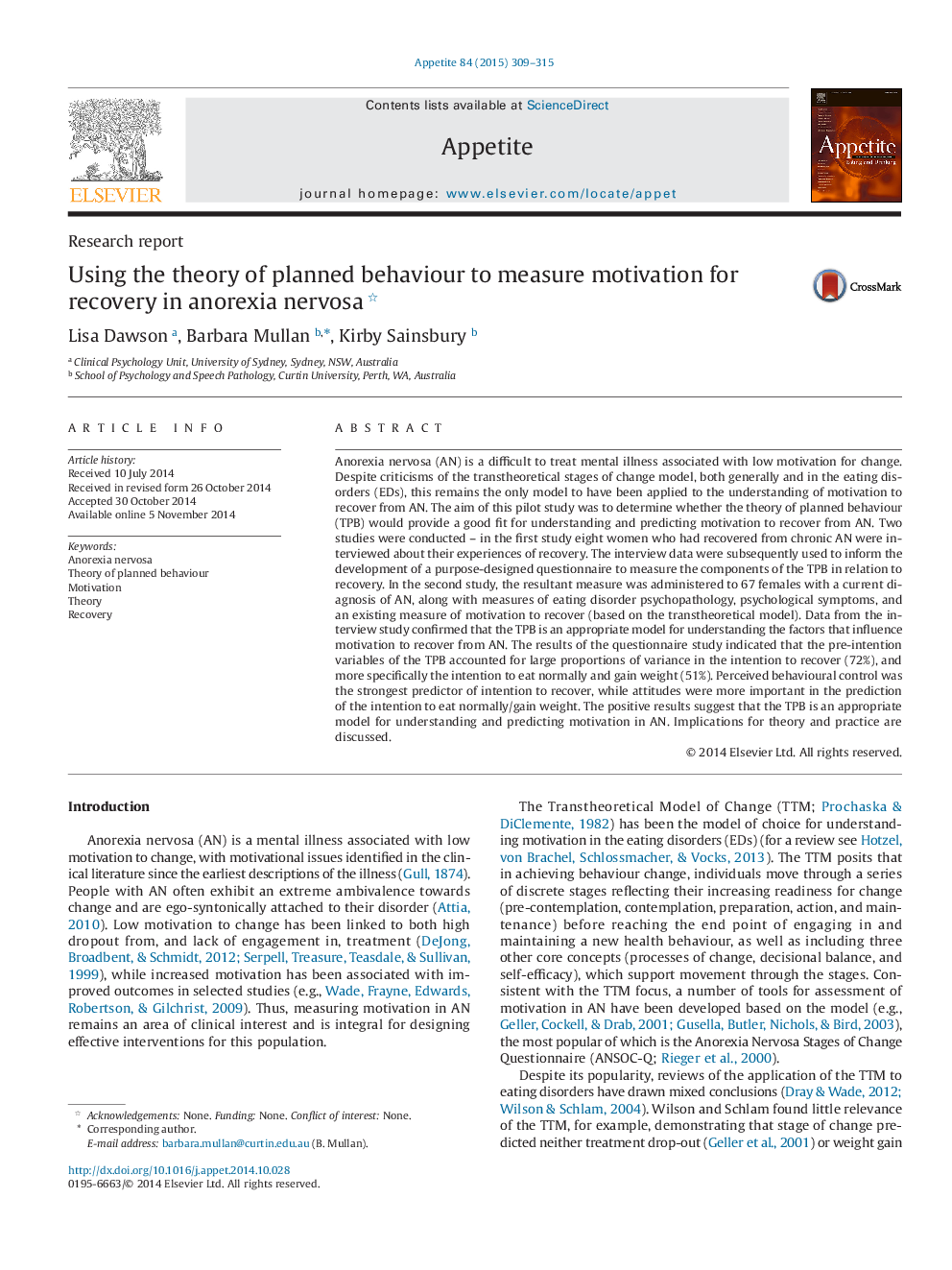| Article ID | Journal | Published Year | Pages | File Type |
|---|---|---|---|---|
| 7309871 | Appetite | 2015 | 7 Pages |
Abstract
Anorexia nervosa (AN) is a difficult to treat mental illness associated with low motivation for change. Despite criticisms of the transtheoretical stages of change model, both generally and in the eating disorders (EDs), this remains the only model to have been applied to the understanding of motivation to recover from AN. The aim of this pilot study was to determine whether the theory of planned behaviour (TPB) would provide a good fit for understanding and predicting motivation to recover from AN. Two studies were conducted - in the first study eight women who had recovered from chronic AN were interviewed about their experiences of recovery. The interview data were subsequently used to inform the development of a purpose-designed questionnaire to measure the components of the TPB in relation to recovery. In the second study, the resultant measure was administered to 67 females with a current diagnosis of AN, along with measures of eating disorder psychopathology, psychological symptoms, and an existing measure of motivation to recover (based on the transtheoretical model). Data from the interview study confirmed that the TPB is an appropriate model for understanding the factors that influence motivation to recover from AN. The results of the questionnaire study indicated that the pre-intention variables of the TPB accounted for large proportions of variance in the intention to recover (72%), and more specifically the intention to eat normally and gain weight (51%). Perceived behavioural control was the strongest predictor of intention to recover, while attitudes were more important in the prediction of the intention to eat normally/gain weight. The positive results suggest that the TPB is an appropriate model for understanding and predicting motivation in AN. Implications for theory and practice are discussed.
Related Topics
Life Sciences
Agricultural and Biological Sciences
Food Science
Authors
Lisa Dawson, Barbara Mullan, Kirby Sainsbury,
